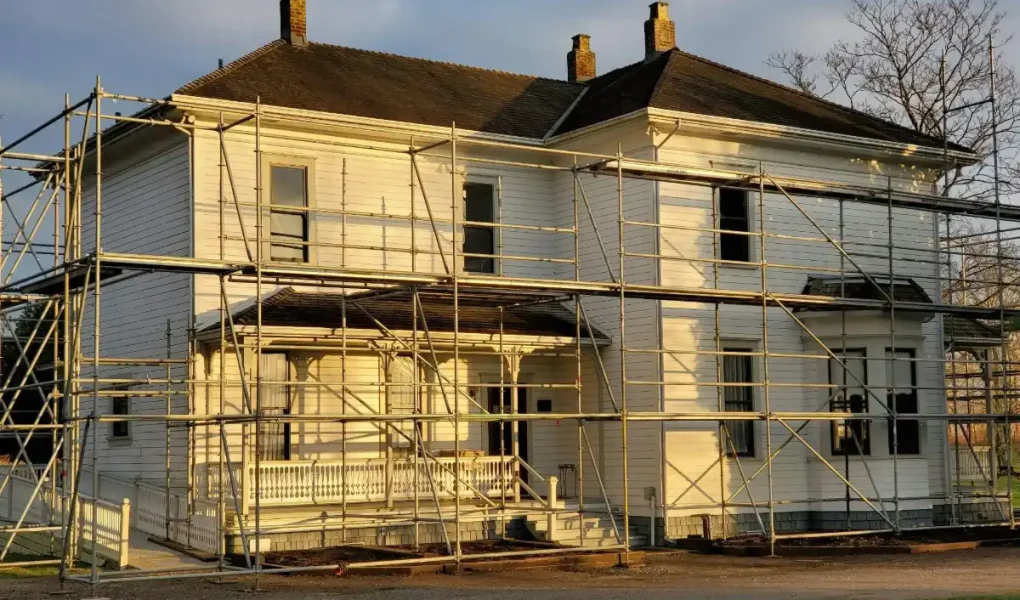Embarking on a primary home remodel is an exciting journey, promising a fresh, updated space that perfectly aligns with your vision. But let’s be honest—major renovations can also be incredibly stressful if you’re unprepared.
Studies show that nearly 35% of home remodels go over budget, according to a report by Houzz, and an alarming number of homeowners cite frustration with delays, unexpected costs, and miscommunications as their top challenges. Add the stress of living through the construction chaos, and it’s easy to see why planning isn’t just helpful—it’s essential.
Proper preparation can help you sidestep common pitfalls and ensure the process goes as smoothly as possible. Not only will you save time and money, but you’ll also preserve your peace of mind and gain your neighbours’ goodwill. In today’s blog post, we’ll share tried-and-true tips to prepare your home and yourself for a significant remodel, offering practical advice from diverse perspectives—whether you’re a first-timer or a seasoned renovator.
Tip 1: Set Clear Goals and a Realistic Budget
Any successful remodel begins with a clear vision. Before ripping out walls or shopping for materials, ask yourself: What’s the purpose of this renovation? Are you updating your home to improve functionality, boost your property’s resale value, or fulfil a long-held dream? Answering these questions will help set the tone for the project.
How to Set Clear Goals:
- Write down your must-haves versus nice-to-haves.
- Collaborate with a designer or architect for a professional opinion.
- Consider how the remodel fits into your long-term plans.
It’s equally important to establish a budget that’s realistic for your goals.
Pro tip: Include a cushion for unexpected expenses—most industry experts recommend setting aside at least 10% to 20% of your total budget for surprises.
Tip 2: Prepare Your Space (and Neighbors)
Construction zones are messy—there’s just no way around it. Preparing your home for such disruption is as crucial as choosing the right materials and contractors.
Preparing Your Home
Start by decluttering the areas that will be impacted. Remove valuables, furniture, and anything else that could be damaged or obstruct workers. Consider protective measures like hanging plastic sheeting to block dust or renting temporary storage units for rooms directly adjacent to the remodel zone.
If pets or children are involved, plan their safety carefully during the chaos. If the kitchen or bathroom will be out of commission, designate backup spaces to minimize inconvenience.
Keeping Neighbors Happy
Construction noise and parking spots occupied by contractors can wear thin on even the friendliest neighbours. As a courtesy:
- Inform your neighbours about the timeline and scope of your project.
- Avoid early-morning or late-night disturbances when possible.
- If there will be extended disruptions, consider offering small tokens of appreciation, such as gift cards or baked goods, as a gesture of goodwill.
Tip 3: Rent a Dumpster Before You Need One
When you think of remodelling projects, your mind likely jumps to new countertops or gorgeous tile rather than piles of debris. Ironically, waste management is often overlooked—until the mess starts to pile up.
Renting a dumpster is one of the smartest things you can do before the chaos begins. It streamlines clean-up and ensures construction waste doesn’t clutter your property during the project.
Why Plan Ahead for Dumpster Rental?
- Convenience: Workers can toss materials directly into the dumpster, saving time.
- Safety: Piles of construction waste can create hazardous conditions for you and your family.
- Environmental Responsibility: Most dumpster rental services adhere to proper disposal regulations, ensuring waste is handled sustainably.
If you’re in Toronto, local Toronto dumpster rental services can provide scalable options tailored to your project size and schedule.
Tip 4: Protect Against Water Damage Early
Major home renovations that involve plumbing, tiles, or roofs carry a higher risk of water damage if things go wrong. Unfortunately, water damage can escalate quickly, costing thousands to repair.
One of the most effective solutions? Install a backwater valve.
A backwater valve is a plumbing device designed to prevent sewage from backing up into your home during heavy rainfall or other emergencies. In cities prone to flooding, this can be a game-changer. Planning early for this installation safeguards your remodel and ensures major systems function correctly for years. Proactively consulting a professional contractor about water-resistance measures is worth the time—you won’t regret it!
Tip 5: Plan for Your Daily Life During the Remodel
It’s easy to focus solely on the renovation itself, but don’t forget to account for what happens during those weeks (or months) of construction. How will you live comfortably while contractors take over your space?
Consider Alternative Living Arrangements
Depending on the scope of your remodel, you may be able to live at home through the construction, but this requires planning. If your kitchen is being renovated, set up a temporary food prep area elsewhere with a microwave and mini fridge. For a bathroom remodel, ensure other bathrooms are functional and stocked.
For larger projects, you might prefer to move out temporarily—for example, stay with friends or family or rent short-term accommodations. It’s an added expense but might save your sanity in the long run.
Final Thoughts
Renovations can transform your home into the space of your dreams, but achieving the best results comes down to proper preparation. So, whether you’re in the heart of downtown Toronto or its suburbs, consult professionals for dumpster rental services and vital upgrades like plumbing reinforcements (check out backwater valve cost Toronto). By setting clear goals, managing your budget wisely, renting a dumpster, protecting your home from water damage, and planning your daily routine, you’ll sidestep common headaches and enjoy the remodelling process as much as possible.




